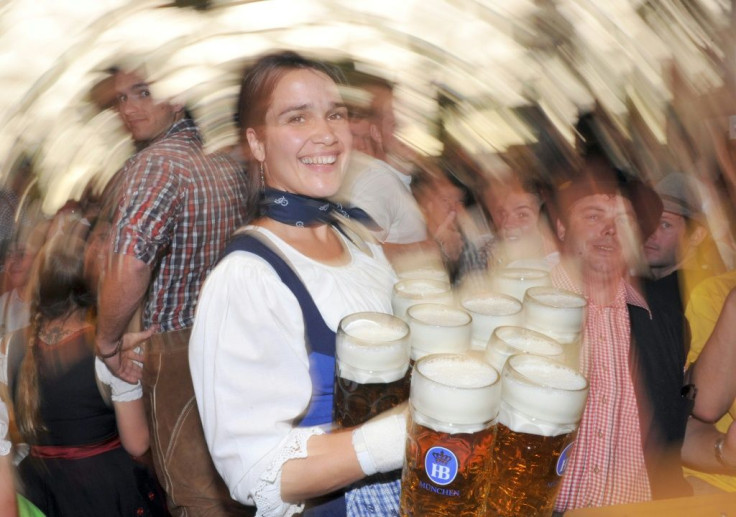Germany's Oktoberfest Cancelled Again Over Covid
Germany is cancelling its iconic Oktoberfest beer festival for the second year running due to the coronavirus pandemic, Bavaria's state premier Markus Soeder said Monday.
The Oktoberfest, which draws around six million visitors annually from around the world in late September to October, was cancelled in 2020 for the first time since World War II.
"In the classic beer tents at the big festivals, social distancing, masks and other measures are practically impossible to implement," Soeder said after a meeting with Munich mayor Dieter Reiter.
"The situation is too precarious," he added. "Imagine there was a new wave and it then became a superspreader event. The brand would be damaged forever and we don't want that."
Reiter said the cancellation was "a great pity" for the millions of fans of the festival, with "existential consequences" for people's livelihoods.
But the pair said they hoped the festival, which generates around 1.2 billion euros ($1.4 billion) annually for the local economy, will return in 2022.
The event, where beer-swilling punters in traditional costume typically dance on tables to classic German drinking songs, was scrapped last year because of the pandemic.
And it has previously fallen victim to epidemics with cholera keeping the beer tents empty in 1854 and 1873.
In its 211-year history, the festival, whose delicacies besides beer include roasted almonds and candyfloss, has been cancelled a total of 26 times.

Germany has been in some form of virus shutdown since November, with restaurants, bars, hotels and leisure facilities all feeling the pain from prolonged closures.
But with the vaccination effort picking up pace and new infection rates beginning to slow, talk has started to turn to the loosening of restrictions for vaccinated people and in areas with low incidence rates.
Under national containment measures introduced in April, areas with an incidence rate of less than 100 new infections per 100,000 people over the last seven days are allowed to open shops, restaurants, cinemas and other facilities to anyone who can provide a negative test.
Soeder had earlier announced plans for Bavaria to open restaurants, theatres, cinemas and beer gardens from next week in areas with incidence rates under 100.
Hotels, holiday homes and holiday apartments will also be allowed to welcome guests over the Whitsun holiday weekend in late May.
But Soeder said that under the "innumerable conditions" that would have to be in place for this year's Oktoberfest to go ahead, Bavaria could risk irreversible damage to its "greatest calling card".
Finance Minister Olaf Scholz had also earlier told the Funke media group there was "still not much to be said" for a large event like the Oktoberfest, despite the prospect of other restrictions being lifted.
"We should hold off on large crowds in a confined space for the time being," he said.
Germany on Monday recorded 9,160 new infections in the past 24 hours and 84 deaths, according to the Robert Koch Institute health agency, with a national incidence rate of 146.9.
© Copyright AFP {{Year}}. All rights reserved.





















